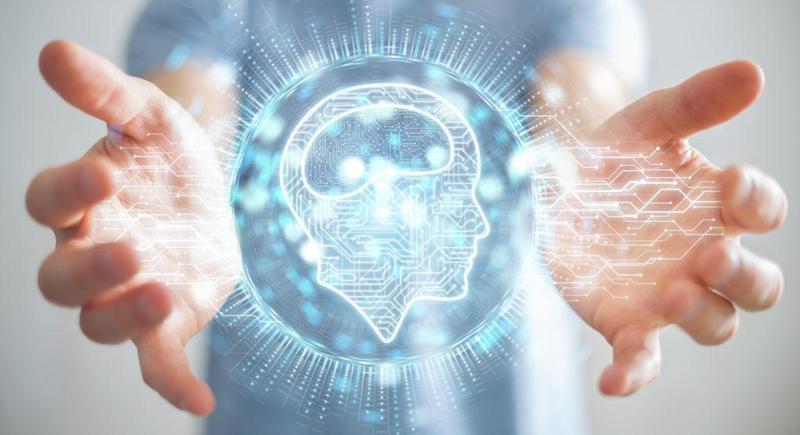Biohacking: The Art and Science of Upgrading the Human Being
Biohacking: The Art and Science of Upgrading the Human Being
There are ways to prolong one's life: man has come up with drug therapy, organ replacement, cloning, and even cryopreservation. But recently a new method has appeared that attracts those who are ready to spend hundreds of thousands of dollars on their health - biohacking.
What is biohacking?
Biohacking is a set of actions aimed at improving the quality and longevity of a person's life. It often includes nutritional correction, training, and meditation, taking special medications, and psychological training.
Today it is a relatively new, fashionable concept of a healthy lifestyle. And the people who practice it are called biohackers. But if a healthy lifestyle in the broad sense of the word implies following simple rules: do not eat sweet, flour, fatty foods, move more, then in biohacking, the approach is more serious. Biohackers base all actions to improve their lives based on analyzes and medical tests: they conduct tests - they start "treatment", again conduct tests - correct the "treatment" and so on.
How does biohacking work?
The main thing in biohacking is a systematic approach, drawing up a lifestyle program, physical activity strictly for yourself. The practice is based on diagnostics: laboratory, functional, and others.
The approach consists of two main stages:
- consultation, diagnostics, and preparation of an individual program.
- re-diagnosis, consultation, and treatment correction.
First of all, biohacking includes nutritional correction and diet selection. Next - monitoring physical activity and scheduling classes. As well as normalization of sleep, regulation and activation of thinking, correction of the emotional response to stressful conditions.
Biohacking covers several areas:
- nutrition,
- exercise stress,
- dream,
- control and correction of the level of vitamins, minerals, and fatty acids,
- control of the state of the body according to the main indicators (especially the level of hormones),
- drawing up a genetic map,
- psychological practices.
Attention to yourself
Learning about yourself is a postulate that runs through the entire philosophy of biohacking and requires an understanding of at least the general state of health.
In addition to basic screening studies, biohackers "promote" the compilation of a personal genetic map. Complete decoding of the genome (as far as modern technologies allow), allows us to identify the "strengths and weaknesses" of the body, as well as to predict future diseases. And it would seem that the "thing" is really necessary, but with genetics, everything is not so simple.
The fact is that there are so many genes that lead to disease in 100% of carriers. These include, for example, BRCA, which is responsible for breast cancer. The carrier of such a gene turned out to be the famous actress Angelina Jolie, who in connection with a dangerous "find" made a radical decision - not to wait for cancer, but to completely remove the mammary glands.
In most cases, certain genes or mutations in them are a risk factor, not a sentence. For their "manifestation" trigger factors are needed, and no one can say "whether they will make themselves felt" with 100% certainty.
Is biohacking dangerous?
The body can be harmed by taking a large number of drugs. In the list of drugs that biohackers take, there are also quite serious ones. For example, the blood sugar-lowering metformin. Usually, it is prescribed for diabetics, and practitioners take it for weight loss, prevention of cancer and heart disease, slowing down the aging of the body. Although metformin is recognized by WHO as one of the safest drugs, it is not completely without side effects: it can cause digestive problems and addiction.
In addition, prolonged fasting and dieting can adversely affect health. Many biohackers eliminate food, not for 14–20 hours, but seven days in a row! They believe it will help you lose weight, increase your body's performance, and stabilize your mood. Doctors warn that fasting can lead to indigestion if not carefully monitored. It is also fraught with increased susceptibility to infections and heart failure.
Psychologists believe that biohacking also changes a person's thinking. The idea of improving yourself and achieving mega-results can become obsessive. And an attempt to establish complete total control over the processes occurring in the body can lead to serious physical and psychological problems.
Thus, the biohacking system, on the one hand, is a powerful tool for maintaining health and activity, and on the other hand, it is an area of experiment, the conduct of which requires the participation of a qualified medical specialist.
The concept of upgrading the human being can encompass various ideas and practices, from physical enhancements to cognitive and emotional improvements. The field of transhumanism, which is the study of ways to improve the human condition through technology, is one area that explores the idea of upgrading the human being. This can include things like genetic engineering, brain-computer interfaces, and other forms of biohacking.
However, it's also important to note that upgrading the human being can also refer to more traditional methods such as education, personal development, and self-improvement practices. This can include things like learning new skills, practicing mindfulness, and engaging in physical fitness and healthy habits.
The art of upgrading the human being refers to the subjective experience of personal growth and self-improvement, while the science of upgrading the human being refers to the objective methods and technologies that can be used to enhance the human condition.
It's important to approach the idea of upgrading the human being with caution and to consider the ethical implications and potential risks of any technologies or practices being used. It's also important to remember that true and lasting upgrades come from within and it's a lifelong process.
